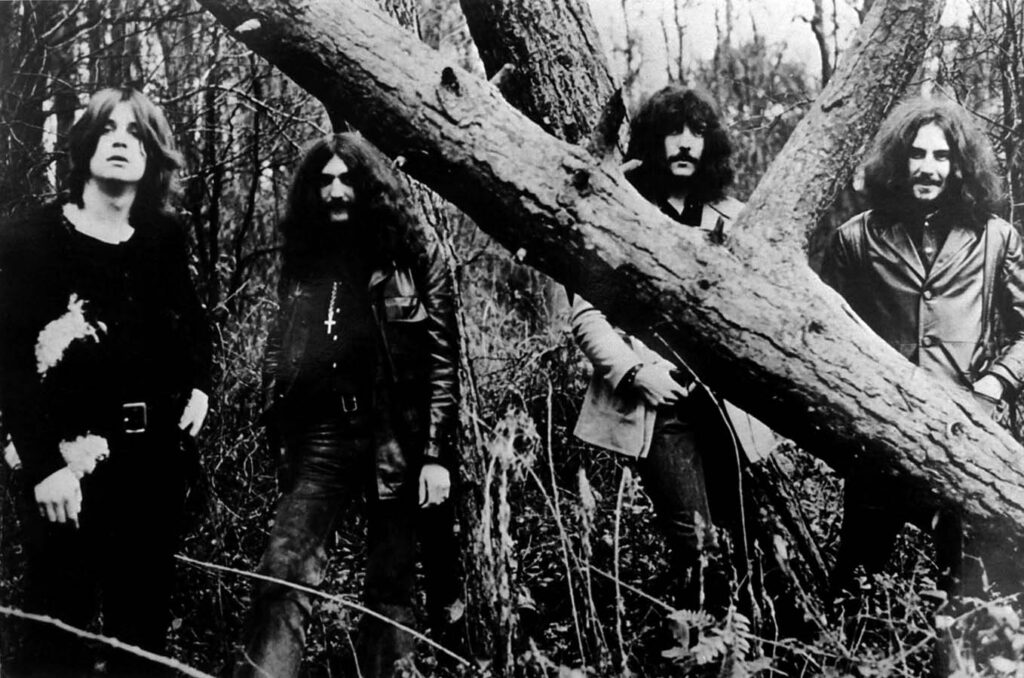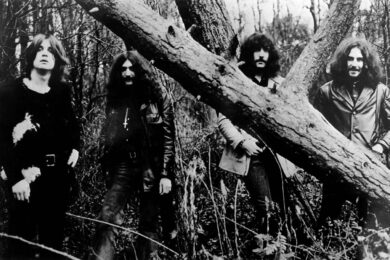There were a lot of reasons to hate misogynist, gun toting, wife-murdering, paedophile, sex-tourist, heroin-glamorising, trust-funded, downwardly-mobile, Nike-advertising, mumbo-jumbo spouting, self-hating human jism stain William Seward Bourroughs. But let’s be fair to the old cadaver for a second; it isn’t quite spot on to call him a sweetcorn-detailed turd floating in the otherwise crystal clear waters of creative writing. For every three bad books he turned out there was always one touched with genius such as Naked Lunch or Junky. It’s just that when he was bad he stank. Reading The Ticket That Exploded is like having a social anthropologist in the full throes of dementia, after a week of drinking carbolic oil and withdrawing from opiates; dropping his trousers bending over in front of you, meticulously and digitally parting his sphincter and unleashing a stinging jet of foul diarrhoea straight into your gaping mouth.
One of the many cultural atrocities that he bequeathed to us was the infernally piss poor concept of the cut up. WSB wanted to step up his concepts of ‘automatic’ writing, and one way he achieved this was to physically cut his prose up into sentences, place them in a hat and then rearrange them at random. Now, at least Old Bill had a certain flair with the sentence, but his legacy is a herd of third-formesque
copycat poets squirting their own jets of effluence into the ether. To be fair it is a very egalitarian art form as anyone can do it. I’ve had a go myself here: Grip a fucking get idiots you dullard. So given all this, why do I love him? Because he invented Heavy fucking Metal.
The term comes from his maddeningly pointless 1964 work of sci-fi hackery The Nova Express, via The Soft Machine, and was seized on and popularised by walking drug pudding Lester Bangs and biker rock bezerkers Steppenwolf (in their Easy Rider anthem ‘Born To Be Wild’) and was primed and loaded waiting to be applied generally the next decade.
Of course it’s harder to pin down what the actual first heavy metal album is. (It’s an album based genre, he says, neatly sidestepping calls for the actual musical genesis with variously The Beatles’ ‘Helter Skelter’, The Kinks’ ‘You Really Got Me’, Hendrix’s ‘Purple Haze’, Iron Butterfly’s ‘In-A-Gadda-Da-Vida’, The Troggs’ ‘Wild Thing’ and many tracks by Grand Funk Railroad, Vanilla Fudge and Blue Cheer.) Of course, in a way it’s a pointless debate. Heavy metal, like Jack Torrence in the Overlook Hotel, has always been there. It is an old sensibility that was just waiting for technology to catch up with it. Wagner was heavy metal; Paganini was heavy metal; Mahler was heavy metal; Gustav Holst was heavy metal; the cave paintings at Lascaux are heavy metal; the bow shock of Jupiter is heavy metal etc.
But for all of these contenders, if you’re that masculine that you need to nail these things down to a calendar, then Black Sabbath deserve this particular gong more than anyone else. In the field of rock music, if Altamont killed the 1960s then Black Sabbath gave birth to the 1970s.
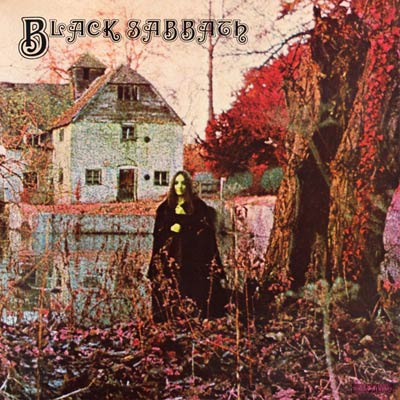
After forming in Aston, a working class, industrial suburb of Birmingham in 1968, Ozzy Osbourne, Tony Iommi, Geezer Butler and Bill Ward, lumbered about the West Midlands playing heavy, electrified blues rock (most notably as Earth) until Iommi got the call to replace Mick Abrahams in Jethro Tull. He was already a guitar savant – probably because of, rather than despite the fact that he had lost the tips of two fingers in an industrial accident. His boss at the factory bought him an album by octo-digital Belgian gypsy guitarist Django Reinhardt, which inspired Iommi to melt down two Fairy Liquid bottle tops to act as makeshift finger tips – a system he still favours today.
Idiots have always been quick to state that it was this accident (and suggested lack of virtuosity that it caused) which led to the bludgeoning aspect of metal riffage but one only needs listen to songs from Sabbath’s first year such as the chilled out Balearic brilliance of ‘Planet Caravan’ or ‘Sleeping Village’ to hear that this is nonsense. The state of Iommi’s fingertips was of little importance compared to the length of his tenure in the Tull, namely seven days; the axe man missed his mates and wanted to get back to Brum. Something as egalitarian, anti-fashion and as long lasting as metal had to gestate outside of London and all concepts of good taste and style.
The first track they wrote together was ‘Black Sabbath’ itself, which took its name from a 1963 Boris Karloff movie. The ponderous chord sequence is based loosely on the opening fanfare from Gustav Holst’s ‘Mars, The Bringer Of War’ from The Planet Suite (I told you he was heavy metal). Ozzy wrote the lyrics after Butler, ashen faced, told the band that he’d had a close call with the big red guy with horns. The callow bassist had decorated his entire bedroom with upside down crosses and indulged in a spot of occult worship and then took fright when a figure, who he took to be Satan, appeared at the end of his bed. It should be said, however, that Ozzy’s lyrics caution the listener not to dabble. The band themselves were annoyed when the original gatefold album, which came out in 1970 on Vertigo, included an apocalyptic and occultish poem in the outline of an upside down crucifix that had been included without their approval.
Gustav Fucking Holst
Black Fucking Sabbath
But all the pieces were in place. A heavy chord progression that occupied the ground between classical tradition and brutal primitivism played at punishingly loud volume, with an electric urgency of delivery, a guitar solo and lyrics of a dark and mysterious spirituality. This album would go on to solidify convention after convention – the rejection of cosmopolitan London trends for working class solidarity in the provinces, the summoning up of elemental powers by having the album open with a ‘field recording’ of rainfall, thunder and a tolling bell and the bleak, disturbing cover imagery. The quartet had, for all intents and purposes, invented heavy metal.
Rain, thunder, bells, action. So it was then and so it is now on these lush reissues of the Sabs’ first three albums via Universal (which are packed with extra bells and whistles). The bell that rings so sonorously here is the same one that tolls on AC/DC’s ‘Hell’s Bells’, Metallica’s ‘For Whom The Bell Tolls’ and Sunn O)))’s ‘Big Church’. These are the details that people who mock metal latch on to, but they’re nothing short of essential. As the Metallica track makes explicitly clear, you can take this as the kind of daft sound effect that you might hear in a Hammer Horror movie but at the same time this is also John Donne’s metaphysical chime, cutting to the core of things. It states that this is music with big themes and is music of spirituality; it is a division bell indicating that the the pretentious, the sneering or fashion conscious may wish to stop listening. But it also warns them not to ask who the bell is tolling for. It tolls for them as well, motherfucker.
Of course it wasn’t a pure genre kick-start. ‘The Wizard’ straddles the line between proto-metal and heavy blues rock with its delta man harmonica, Ginger Baker-style drumming courtesy of Ward and woman-gone-left-me guitar licks. But of course, all of this talk of Satan and wizards leads us to another important cornerstone. Sabbath were the right colour; all of these American bands just didn’t take it far enough. As the great man said: it’s none more black, not none more Vanilla (Fudge) or none more Blue (Cheer).
As with everything ‘classic’, there was a lot of happenstance at play on their debut. This album was undoubtedly aided by severe financial constraints – it was pretty much recorded in one 12-hour session, not allowing any time for excessive polish, many diluting overdubs or fashionable frills such as synthesizer parts, which could have ruined it.
It perhaps goes without saying that Sabbath were immensely unpopular to begin with. Even the Heavy Metal term-coining Lester Bangs hated on them at first (admittedly, he threw a massive U-turn later in life). Their only vocal supporter on the radio from the outset was, it almost goes without saying, John Peel. They didn’t have anyone other than provincial headbangers in their corner, which was undoubtedly very important. So outside of all the obvious riff manufacture/setting up genre conventions already mentioned it should be noted that the biggest-selling genre of music in the world (bar maybe hip hop) was allowed to gestate uninterrupted by tastemakers in London. And nearly all of these conventions still apply today, almost 40 years later.
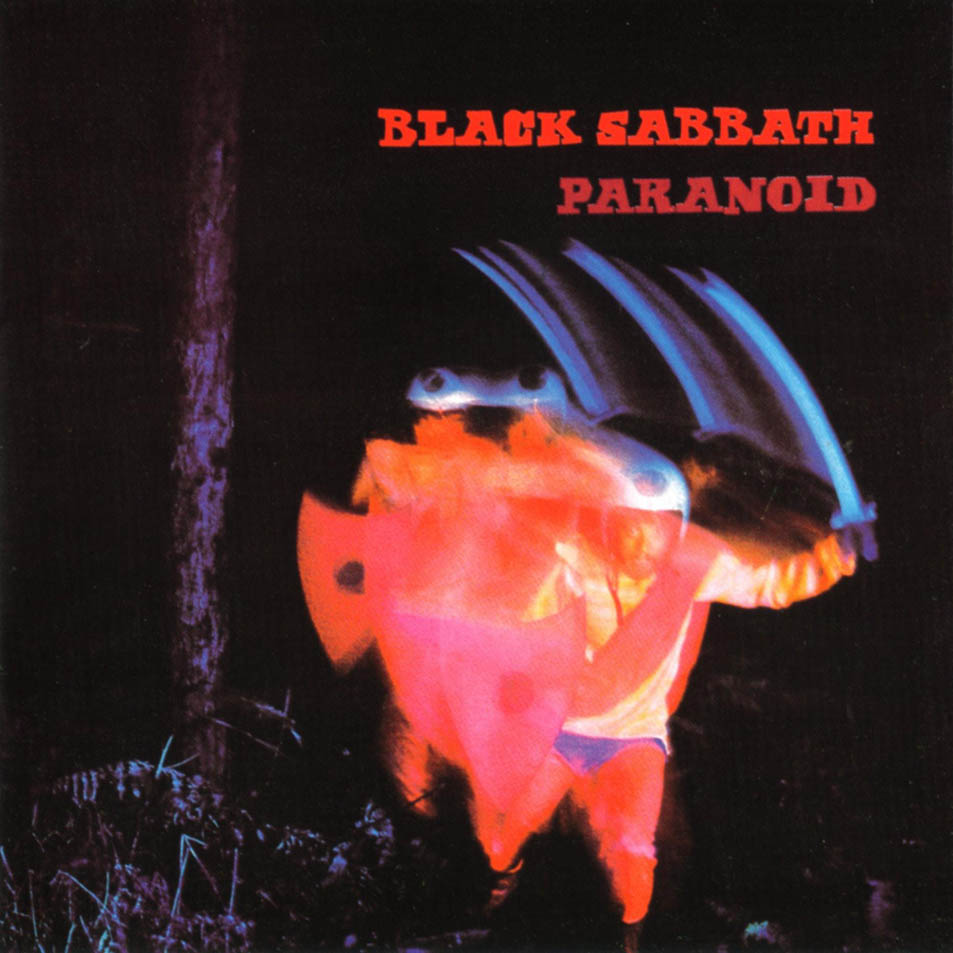
I’ve been a metal writer for the last six years and in that time I’ve discovered you can only really take one thing for granted about musicians in this genre: they all look up to Sabbath. I’ve lost count of the number of guitarists (but they have included Zakk Wylde, Dimebag Darrell and Rob Flynn) who have bemoaned the lot of the riff writer who has to come up with the goods when Iommi (and Butler) covered most of the bases, often before they were born or out of short trousers. A lot of these genre defining riffs are to be found on their second album Paranoid, which is certainly the best of these three, if not their entire back catalogue. (If pushed I’d say that Vol. 4 was my favourite.)
"Hey, you guys! I think I’ve thought of a riff!"
And what riffs they are. ‘War Pigs’, ‘Paranoid’, ‘Iron Man’, tossed out as if to say "Fuck you the future of heavy metal, we do whatever we like." ‘Paranoid’ famously was tossed out in a few minutes. When they initially submitted the album, Vertigo were dismayed not to hear a single and ordered their charges back to the studio. As if scripted and directed by Oliver Stone, Iommi ordered everyone to go out for lunch and had the music written by the time they came back with Oz laying down the lyrics down live later in the afternoon. You see how easy it can be, My Bloody Valentine? The whole exercise was over so quickly that no one seemed to notice the similarities to Led Zeppelin’s ‘Rock And Roll’. [Probably, as has been pointed out in the comments, because it hadn’t been written yet, Ed]
The group were already becoming fed up with the Satanic hoopla that was surrounding them. The song ‘War Pigs’ was originally written as ‘Walpurgis’ or the Witches’ Sabbath. They were asked to play a concert celebrating this pre-Christian date at Stonehenge and when they refused, the so-called head witch of England Alex Sanders placed a hex on them. This was the primary reason why the band took to wearing huge crucifxes, made by Ozzy’s dad, Jack Osbourne. Such was their rush to get holy protection from dark spirits that early photos clearly show some of them wearing metal tap heads diverted from water provision duty in some bathroom or other rather than actual crucifixes. Again, their involvement in the occult had been somewhat overstated. Instead the song was rewritten as a straight up anti-Vietnam piece. Their lyrics remained mainly altogether more tangible, dealing with depression, nuclear accident, drug abuse, warfare, violent skinheads and cunnilingus. This was not to say that the axis of sci-fi and fantasy was far away, as revealed by ‘Iron Man’ – a song about a large iron man called Iron Man. Comic book lyrics aside, this is – as you well know – one of the best songs ever recorded; it could be about Battenburg cake for all I care. This three disc edition comes with a Satan-summoning quadraphonic stereo mix and another disc of demos and instrumentals.
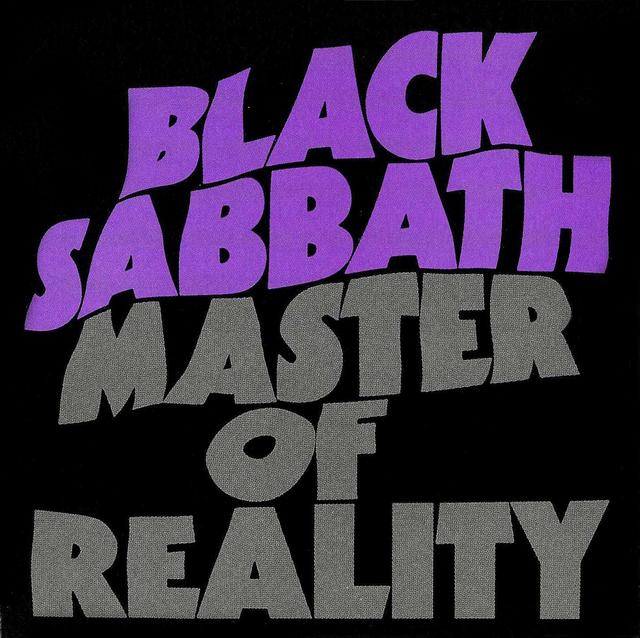
Their third, Master Of Reality, was released next summer in 1971, and the fact that in the meantime they’d become quite popular didn’t seem to mean much to Vertigo, given that this album in some respects sounds like it was recorded in a shed. In fact Sabbath were ushered into the studio to start recording on January 1st; this dour and dreaded day had not yet been declared a bank holiday in the UK and they were obviously not deemed important enough to be granted it as a day of rest. But the lo-fi sound suits the bong-loaded ‘Sweet Leaf’, the band’s instructional list of the pros and cons of weed smoking, leant on to great effect by the Butthole Surfers for ‘Sweat Loaf’ at the end of the 80s. It was at this point that Tony Iommi started down-tuning his guitar to make it easier for him to play. Of course Butler had to follow suit and Ward chose to retune his kit and this naturally made the band sound even heavier and sludgier. This effect is audible on tracks such as ‘Children Of The Grave’ and ‘Into The Void’, the former of which revisited the band’s tendency to use the ‘devil’s chord’, or tri-tone, which prior to Sabbath would have been more likely to crop up in classical music or on the soundtrack to a Hammer bloodbath than in pop or rock.
Of course, the chummy solidarity of metal has always been in direct conflict with the genre’s tendencies toward the instrumentalist virtuoso, and for the first time some tracks (‘After Forever’, ‘Embryo’ and ‘Orchid’) were written by Iommi purely as vehicles for his guitar playing. Perhaps one of Sabbath’s most under-appreciated songs is here, ‘Children Of The Grave’: an impassioned plea for politicians, media and the powers that be to tell the truth, over a galloping riff and clattering percussion.
They were and still are the prime contradictary truth about heavy metal. Tough guys who threw peace signs. Headbangers who smoked weed but cautioned against the depression it could cause. The bringers of a violent new noise who railed against the war in Vietnam. The producers of a sound that was at once primitavist and virtuoso. Literate and loutish. Frightening but fun. The harbingers of a sound that was brand new, while carrying on a tradition that was jet black and centuries old. Sometimes obviously daft, always limitlessly righteous.
Get involved with Capsule’s Home Of Metal project here. The scheme celebrates Birmingham and the West Midlands as the cradle of civilization when it comes to bands such as Sabbath, Judas Priest, Led Zeppelin, Godflesh and Napalm Death.

